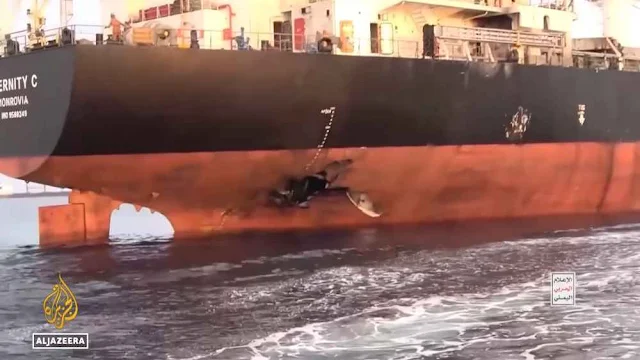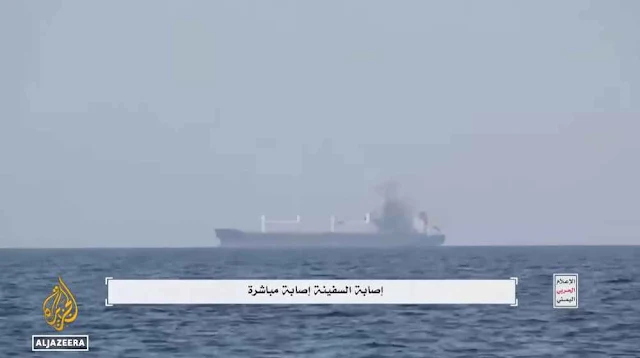Saturday
ISRAEL BOUND SHIPS ATTACKED BECAUSE OF GAZA : RED SEA CRISIS
Monday
SOUTHERN AFRICA TRANSIT PILES UP COSTS
The transport route around the southern tip of Africa was once little used — but freighters are now forced to take it and are charging higher rates.
To get from Asia to Europe and back, global shipping companies have for decades sailed through the Red Sea and the Suez Canal. But a year ago, the Houthi insurgents in Yemen began targeting vessels in the Red Sea with drones and missiles, forcing shipping companies to divert their cargo around the Cape of Good Hope at Africa’s southern tip, a route that is some 3,500 nautical miles and 10 days longer.
Now, as this great diversion enters its second year, the costs are piling up for importers, the environment and countries like Egypt that rely heavily on maritime revenue. And the stress on shipping is likely to increase if companies rush to bring in imports
But the diversion around Africa has increased the need for vessels — more were deployed to maintain regular service over the longer route — and rates have surged. The cost of shipping a container from Asia to Northern Europe is up 270 percent in 12 months, according to Freightos, a digital marketplace for shipping.
The demand for ships has pushed up rates everywhere. The cost of shipping a container from China to a West Coast port in the United States is up 217 percent over 12 months.
Some importers have been hit with much larger increases.
Thursday
FESCO STARTS CONNECTING MOMBASA, KENYA
- A Russian transport company launches sea route to Kenya.
- FESCO has started shipping cargo between Novorossiysk on the Black Sea and Mombasa
A Russian shipping company has launched a container route between Novorossiysk on the Black Sea and Kenya’s largest port, Mombasa.
On Wednesday, FESCO – owned by Russian state nuclear power firm Rosatom – announced that the first consignment of Kenyan tea bound for Russia was being loaded in Mombasa. The projected transit time is 43 days.
The FESCO statement indicated that Russia will export construction materials, fertilizers, metals, polymers, wood products, as well as paper and pulp to Kenya using the new route. Imports from the East African nation will be dominated by tea, coffee, nuts, and other agricultural commodities.
Russia’s export shipments will go from Novorossiysk to India’s Mundra port, a regular stop for vessels operating on the FESCO Indian Line West route between India and Novorossiysk, before onward transportation by feeder vessels to Mombasa. Imports will make their way through the port of Jebel Ali in the United Arab Emirates, ensuring a steady flow of diversified goods between the two countries.









